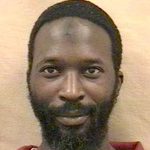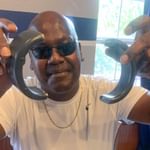
Official Misconduct
Discrimination in Jury Selection
Merely allowing defendants the opportunity to challenge the racially discriminatory use of peremptory challenges in individual cases will not end the illegitimate use of the peremptory challenge.
Racial discrimination in jury selection is a widespread problem in death-penalty cases. Qualified potential jurors may be excluded from juries through the use of “peremptory strikes.” Peremptory strikes can easily be used to discriminate because parties do not need to provide a reason or meet a specific standard to exercise these strikes. Because parties usually have more peremptory strikes in capital cases and because “death qualification” of the jury already decreases jury diversity, the discriminatory use of peremptory strikes can have a particularly severe impact in death penalty trials.
In Batson v. Kentucky, the U.S. Supreme Court held that the prosecution may not use peremptory strikes to exclude a potential juror based on race. If the defense believes the prosecution peremptorily struck a potential juror for this reason, the defense must make an initial showing of racial discrimination. Then, the prosecution must provide a race-neutral reason for the strike. Finally, the court must decide whether the race neutral explanation was the true reason for the strike or only a pretext. The principles underlying Batson were later expanded to apply to strikes made by criminal defendants, strikes exercised in civil suits, and gender-based juror discrimination.
Prosecutors have been trained to provide race neutral justifications to strike jurors of color from their cases. In Philadelphia, a 1986 training video told new prosecutors, “When you do have a black juror, you question them at length. And on this little sheet that you have, mark something down that you can articulate later… . You may want to ask more questions of those people so it gives you more ammunition to make an articulable reason as to why you are striking them, not for race.”

This issue is illustrated by the case of Russell William Tucker. Tucker has been on death row in North Carolina since 1996. At trial, the prosecutors, David Spence and Robert Lang, relied on a document entitled, “Batson Justifications: Articulating Juror Negatives,” distributed in a prosecutorial training session that provided race neutral justifications to respond to Batson challenges. The prosecutors used language directly from the training document to justify their strikes in Tucker’s case, citing jurors’ “monosyllabic” replies, “body language,” or their opinion that the juror had “no stake in the community.” All five potential black jurors were struck from serving on Tucker’s jury. In 2020, a Forsyth County Superior Court judge rejected Tucker’s Batson argument and denied his appeal.
Empirical studies demonstrate the persistence of racial discrimination in capital jury selection despite the Batson decision. A 2017 study of South Carolina capital jury selection found that prosecutors were more than twice as likely to use peremptory strikes against Black potential jurors as compared to white potential jurors. A Michigan State University study of North Carolina prosecutorial jury strikes or acceptances of more than 7,400 jurors from 173 capital cases tried over a twenty-year period showed that prosecutors across the state consistently struck Black jurors at approximately twice the rate of other jurors. Yet, a 2016 study of Batson challenges in North Carolina found that, “[i]n the 114 cases decided on the merits by North Carolina appellate courts, the courts have never found a substantive Batson violation where a prosecutor has articulated a reason for the peremptory challenge of a minority juror.”

Curtis Flowers’ case garnered widespread attention because of the extent of jury discrimination in his case. Flowers was tried six times in Mississippi for the same crime by the same prosecutor, Doug Evans. Over the course of two decades and six trials, Evans systematically removed Black prospective jurors from Flowers’ case, repeatedly trying Flowers, who is Black, before all-white or nearly all-white juries. Flowers was convicted and sentenced to death four times, but each conviction was overturned because of misconduct by Evans. The two other trials ended in hung juries, with every white juror voting to convict and every Black juror voting to acquit. On review of the sixth trial in 2019 by the United States Supreme Court, Justice Kavanaugh wrote that the prosecutor’s “relentless, determined effort to rid the jury of black individuals strongly suggests that the State wanted to try Flowers before a jury with as few black jurors as possible, and ideally before an all-white jury.”
Some states have made changes to their laws and procedures regarding peremptory challenges. In 2018, the Washington Supreme Court was the first in the nation to adopt a court rule seeking to eliminate implicit racial bias in jury selection. The rule expands the prohibition of intentional racial discrimination in jury selection by also prohibiting challenges based on “implicit, institutional, and unconscious” racial bias. California followed suit in 2020 with a similar law. However, in 2021, the Arizona Supreme Court took this one step further and became the first in the nation to adopt a rule that bans the use of peremptory challenges.